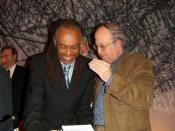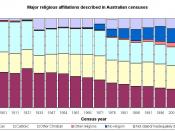Groups that form highly effective teams do not simply happen. It often means a big change in that group of people in order to create such an environment. Highly effective teams must go through some pain in order to work well together. There must be a level of trust among team members at the foundation of every great team. Effective teams must also get past fears of conflict with other members of the team. Lack of commitment is another key detractor to creating effective teams along with avoidance of accountability. Finally inattention to results is the last issue that prevents teams from performing at their best. Cultural diversity and demographics aid teams in innovating unique ideas that can be put into practice and these teams can learn different ways of doing things. By addressing all of these issues, teams can become highly effective.
Trust among team members is different than trust in general.
In a team environment, members must be able to trust that their peer's intentions are for the collective good of the team. (Lencioni, 2002). This allows members to be free to express their opinions among group members without feeling a need to protect themselves. They must be a little vulnerable with their team members and trust that the other members will not use that vulnerability against them. This type of trust can be gained by delving into each member's personal histories. Getting inside information on each member allows everyone to let their guard down to some degree. Personality profiles can also be completed by each member of the team to find out each personality type. By doing personality profiles such as a DISC Assessment or a Myers-Briggs Type Indicator can be used to identify different personality types among team members. These assessments can be valuable tools for...


